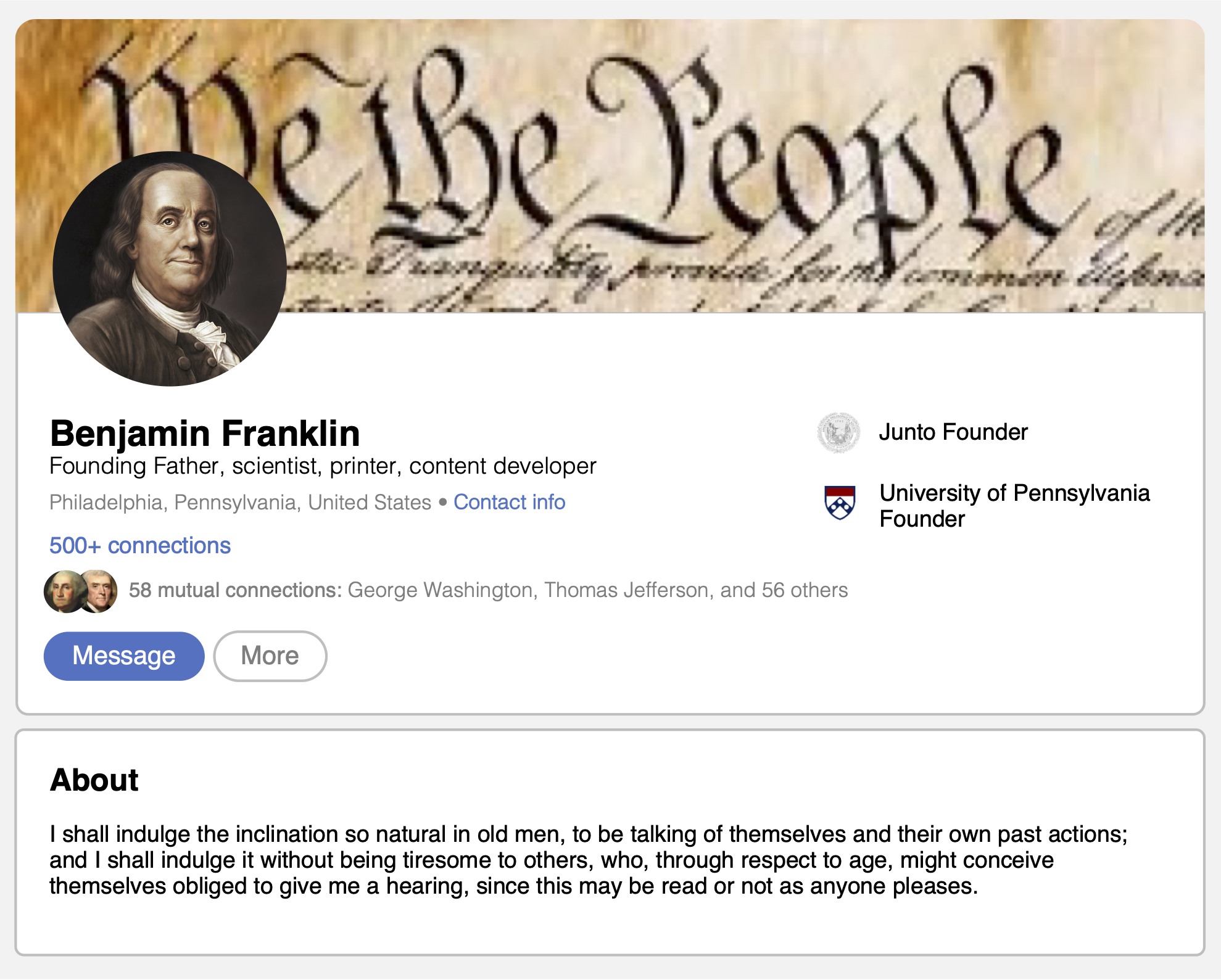When I read about famous figures from bygone eras, I love to imagine them teleporting to modern times. It would be fascinating to see how they would take it all in, if their heads didn’t explode.
That entertaining little concept crossed my mind, a lot, as I read Benjamin Franklin, An American Life, by Walter Issacson, and watched the Ken Burns series. My impression is that if Mr. Franklin dropped from some celestial ooze into modern life, after a period of adaptation and a wardrobe change, he’d do just fine. In fact, he’d probably thrive.
On a trip to Philadelphia, I began learning a lot about Franklin—and I was smitten by the guy’s genius. I knew he was smart, but my public school education fell woefully short here. Like many of us, Franklin was fused in my mind as the two-dimensional, spectacle-wearing colonial dude flying a kite in a lightning storm. I can still see the history book illustration in my mind.
He was far, far more. And much of what our country is founded on, indeed our very existence as a nation, is in large part owed to him. His list of accomplishments is staggeringly lengthy, impressive, and humbling. I don’t know when the man slept.
As Franklin’s story unfolds in this biography, one of the places my mind keeps racing to is, of all places, LinkedIn. The gregarious, highly connected Franklin would have LOVED the platform—and he most definitely would have been one of those people with 500+ connections.
The way Franklin approached life is a timeless lesson in networking and cooperating with others for the greater good. It’s even more impressive when you think that communications in his day relied on rickety printing presses, quills, inkwells, and horseback.
To me, there were two themes that weaved through Franklin’s life from a very early age: He loved to 1) connect with people, and 2) create and share awesome things.
Sounds an awful lot like what most of us do on social media, right? But here are the reasons I connect Franklin to LinkedIn, and they’re great lessons for all of us:
Be about advancement for all. Franklin was all about advancing—himself, his friends and colleagues, his and their businesses, industry, and society as a whole. He continually met and brought folks together for common learning and good. A tenet of Franklin’s life was that when people (or 13 colonies) come together, they can achieve incredible things, and he loved finding and organizing the right people for the right causes. To me, that’s a talent worth nurturing, if you have it.
Always find ways to connect with others. Franklin had lifelong friends in every colony, American city, and in England. He wrote volumes of letters to people, orchestrated regularly scheduled groups to solve societal problems, and enjoyed working with people from every walk of life. He was known and beloved by everyone from tradesmen to royalty. It made me think: what kind of legacy am I leaving?
Be pragmatic and useful to others. Franklin was boundlessly curious, forever exploring, documenting, and thinking. And he openly shared everything with his connections—serving as a mentor, colleague, and teacher. He was incredibly helpful in bringing useful information to people. Do you bring this practical advantage to your network?
Always share quality, original content whenever you can. Franklin was a quality content factory. He wrote and printed Poor Richard’s Almanack for more than 25 years and even today, it’s still entertaining. What’s more, Franklin produced a popular, weekly Philadelphia newspaper, literature, and pamplets—all exquisitely written. Think of the stuff you share. Would Ben approve?
A mix of business and pleasure is good. Franklin was a tireless self-marketer and businessman, but he was far from all business. When revisiting London, he made it a point to stop by the printshop where he once worked, lugging in buckets of beer for his former employer and colleagues. He was fun to be around. To quote one friend of his, “I never saw a man who was, in every respect, so perfectly agreeable to me.”
Many of us, especially at networking events, tend to only think about what we want from people, as opposed to what we could bring or offer them. Some of the most memorable people I’ve known—at work, in life, in person, and virtually—were those who were just a pleasure to be around.
I think Ben would concur.
